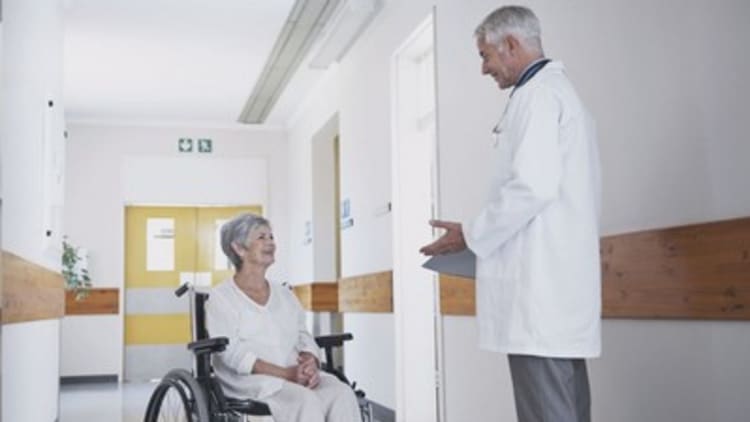
If you're pleased that McDonald's and other restaurants are switching to healthier foods, like chickens raised without antibiotics, you might want to thank a millennial.
And if you're unhappy with a recent doctor's bill, you might want to act like one.
It turns out millennials are twice as likely to challenge the cost of their medical care than the general population, according to a new PwC report called "Money Matters: Billing and Payment for a New Health Economy."
Nineteen percent of those ages 25 to 34 said they've asked for a discount on medical care, compared with just 8 percent of the general population. They are also twice as likely to ask for cheaper treatment options and to seek help from providers to pay for costly medical bills.
And it's behavior like this that could help shake up the way the health-care industry does business.
Read MoreThese patients pay 3-times as much for health care
"It surprised us in health care that millennials would be so opinionated and vocal on this," said Ceci Connolly, director of PwC's Health Research Institute. "For the most part, they're still young and relatively healthy, so we didn't think that they would engage much on this topic."
But the findings come as no surprise to millennial Jen Mishory, executive director of Young Invincibles, a lobbying group that focuses on policy issues impacting young people.
"You're looking at a generation that has significant student debt, that has wages that have declined more rapidly than for older workers," she explained.
Read MoreCutting health costs in retirement
Mishory points to a Commonwealth Fund study that showed just over 1 in 3 young adults struggled to pay health bills or medical debt before the expansion of Obamacare coverage in 2012. An updated version of that survey found the number had not changed last year.
"Young people are trying to make sure they are getting the best deal possible because they need the best deal possible," Mishory said.
Having grown up being able to compare prices for everything from air fares to electronics, millennials expect the same transparency in health care. While just 10 percent of the general population will inquire about costs for a treatment, 17 percent of 18 to 24 years olds surveyed by PwC said they ask about pricing, and 21 percent of those ages 25 to 34 said they ask for a price check on medical care.
"I think it's going to be great for the health-care system to have people actually really making sure that they're getting the best deal possible and really demanding transparency," said Mishory.
There are generations of us who have come to be frustrated...in our health-care system and feel...powerless. These younger generations are saying they're just not going to accept that.Ceci Connollydrector, PwC's Health Research Institute
PwC analysts estimate that Americans will spend $435 billion in out-of-pocket co-payments, co-insurance and deductibles this year. That number reflects the fact that many consumers are bearing more of the burden of their health-care costs. As a result, the health-care industry needs to move away from business-to-business billing and pricing—with hospitals and doctors contracting on rates with insurers, who then contract with employers on premiums—to a more consumer-friendly model.
Read MoreTech-savvy dentists save $$$, space
Consumers of all ages told PwC the two most important things they want when it comes to buying health care, insurance and drugs are to be able to know prices ahead of time and to be able to comparison shop online. Millennials are just more vocal about it.
"I think there are generations of us who have come to be frustrated, but tolerate the frustrations in our health-care system and feel even a little bit powerless. These younger generations are saying they're just not going to accept that," said Connolly.
Major insurers like Aetna and United Health, and more tech-oriented start-ups like Oscar Health Insurance are providing members with more online and mobile pricing and comparison tools. The PwC report says more hospitals are working on simplifying the way they bill patients, embracing online and mobile bill payments. All things that are especially important to millennials.
"If you just stop and think about demographics, pretty soon they're the customers that are going to matter a whole lot to the health-care industry," said Connolly, "So it's an early warning sign."


